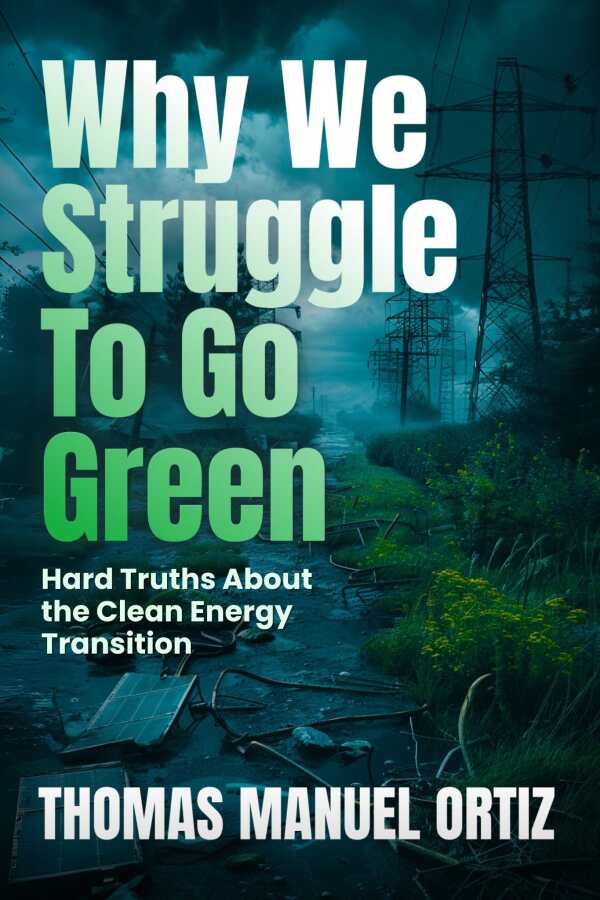Why We Struggle to Go Green
Hard Truths About the Clean Energy Transition
Thomas Ortiz’s Why We Struggle to Go Green is a pressing exposé on the state of the world’s carbon economy.
Examining what can be done to curb the rate of carbon emissions, including relying less on fossil fuels and more on wind, solar, and nuclear power, the book conveys the urgency of curtailing climate change. It also names the challenges to doing so with clarity born of extensive research and engineering experience. The current rate of emissions puts the world at significant risk of not meeting the climate goals outlined in the Paris Agreement, it says, while the global rate of fuel extraction and usage is unsustainable. “We are consuming the world’s existing stock of fossil fuels at a rate over 13,500 times faster than nature can regenerate it,” it notes. The problem is compounded by the finite nature of such resources and the increasing inaccessibility of deposits of essential elements including lithium, cobalt, and nickel.
This book’s examination of the drastic shifts in energy consumption and distribution required of industrialized nations in order to curb emissions and transition to green energy sources is striking. It avoids alarmist rhetoric to serve as a comprehensive primer on the reasons corporations, cities, and nations find the transition to green energy so challenging. Decades of environmental research and experimentation are synthesized into a fascinating exploration of why low-carbon energy sources have been adopted at a plodding pace despite the severe global ramifications of anthropogenic climate change.
An illuminating sustainability survey, Why We Struggle to Go Green is about the multitude of different considerations citizens and cities must contend with in the ongoing battle toward a greener energy grid.
Reviewed by
Caitlin Cacciatore
Disclosure: This article is not an endorsement, but a review. The publisher of this book provided free copies of the book to have their book reviewed by a professional reviewer. No fee was paid by the publisher for this review. Foreword Reviews only recommends books that we love. Foreword Magazine, Inc. is disclosing this in accordance with the Federal Trade Commission’s 16 CFR, Part 255.

